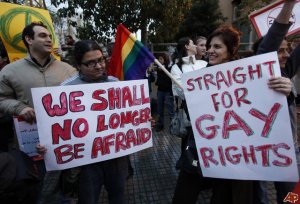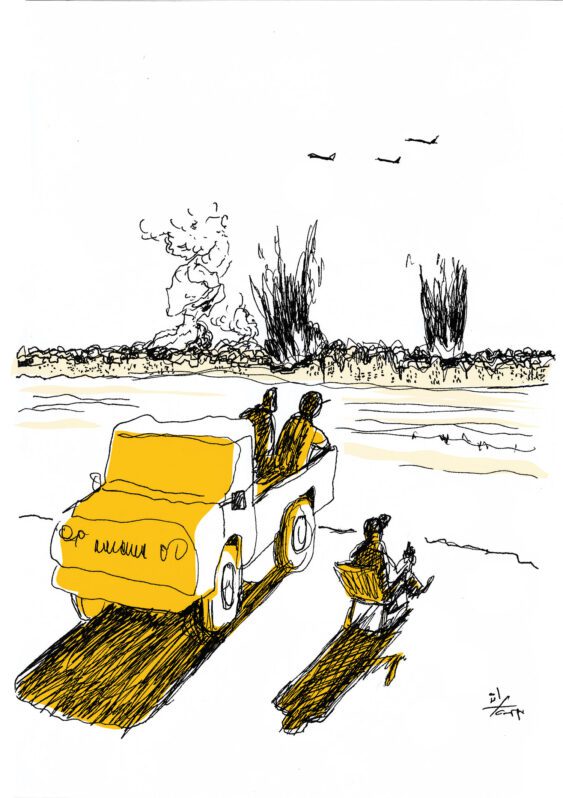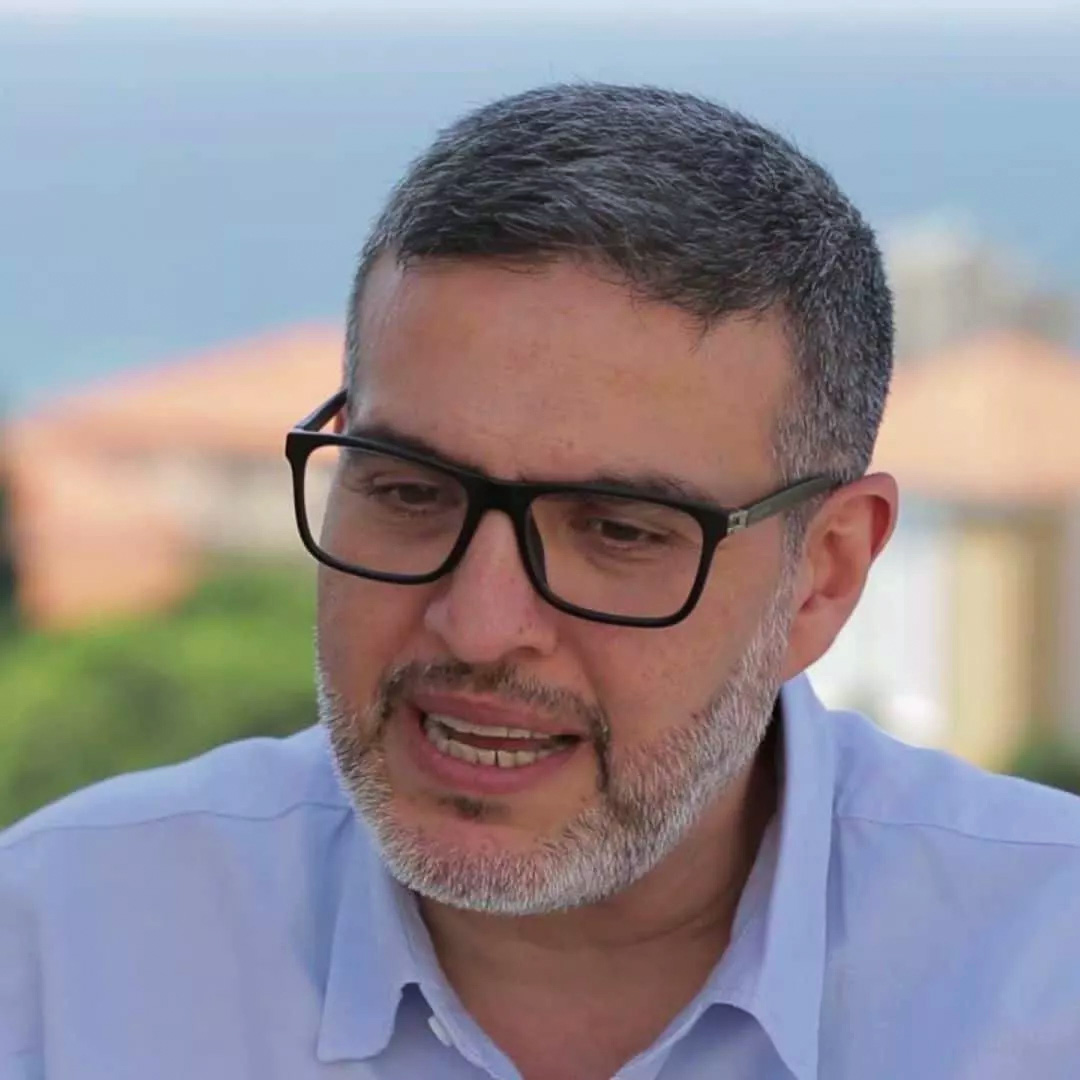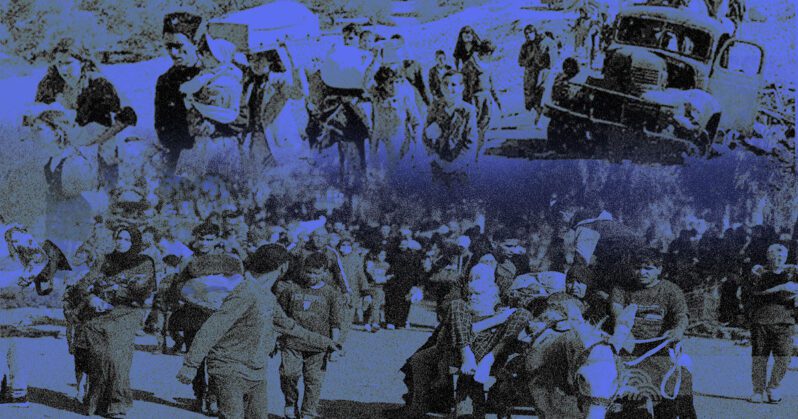Dekwaneh’s “No Gay Land” Triggers Debate on Homophobia

Lebanese civil society scored a victory last year with the abolishment of anal probing (known as the tests of shame). The abolishment came in the wake of relentless efforts by The Legal Agenda and Helem organization to prohibit this grave abuse of human rights. However, Antoine Chakhtoura, the mayor of Dekwaneh located north of Beirut, decided to strike back in the spring of last year by calling for measures that would further marginalize a large segment of the country’s citizens.
It was not enough to raid the Ghost nightclub on Sunday, April 21st, under the pretext that the nightclub became a hotbed for homosexuals (whom Chakhtoura referred to as “him and him” in an interview with the Lebanese Broadcasting Corporation International [LBCI]). Chakhtoura also ordered the arrest of a number of Syrian expats, one of whom is a transsexual, and dragged them to the municipal police headquarters where they were severely and repeatedly beaten, insulted, humiliated and harassed. Amid mockery and derision, two of the arrestees were forced to kiss each other for the amusement of municipal police members. A transsexual was also forced to take all his clothes off and was photographed amidst the jeers of the entertained, allegedly to show proof of his gender or transexualism.
All the municipalities’ actions were initiated locally without any prior coordination with the Public Prosecutor, a flagrant contradiction of the rules stipulated by the Code of Criminal Procedure. No investigation on any offence whatsoever was made: no report was written and none of the arrestees were transferred to the Morals Protection Bureau or the Anti-drug Bureau to face the charges filed against them. Yet, the Dekwaneh municipality proceeded, falsely and without any evidence, to prepare its report on the matter. The report mentions the names of the arrestees who are openly accused of offences that were not even investigated (the main allegations are prostitution and drug abuse). The report was then hung on the nightclub’s door as a pretense for its shutdown.
Public statements by the mayor added to the flagrancy of his action. The purpose of the pub raid was not to repress crime (e.g. prostitution), but rather to banish homosexuals from the municipality’s district. In other words, his purpose was to cleanse the Dekwaneh area from those who purportedly do not belong there. The mayor does not want “half-men” “half-women” in Dekwaneh’s district, which is “known for its pride” and for being “the fortress of steadfastness”.
“We fought battles and defended our land and honor, not to have people come here and engage in such practices in my municipality”, the mayor asserted. Mayor Chakhtoura appeared to be using his skills in waging wars to launch a new one against the homosexual community in order to preserve his fortress of steadfastness. For this purpose, he did not refrain from declaring his own private princedom, whose laws and governance is independent from the country’s laws and institutions.
In sum, Chakhtoura, has arbitrarily given himself the permission for the following:
The investigation of actions committed in his municipality’s district, and the consequent raiding of locales and incarceration of individuals without coordination with, or motion from, the Public Prosecutor’s office;
The investigation of matters not considered criminal offences, such as transexuality, cross-dressing or the holding of hands by same sex couples – and other acts he disapproved of in his televised speech– completely ignoring the principle that there is no offence without a prescribed law;
The use of investigative techniques that are degrading to human dignity, with complete disregard for the basic rights ensured by the Constitution and international conventions. The methods adopted in dealing with the detainees are a clear and serious violation of the International Covenant on Civil and Political Rights (ICCPR). The covenant prohibits torture and inhumane or degrading treatment and ensures each member of society the right to safeguard their privacy from intrusion or prejudice.
In this regard, the mayor’s behavior can be interpreted as taking the law into his own hands. He does this in the name of defending public morality as he understands it. Such behavior certainly contains all the elements of a homophobic offence, at least in the sociological sense. Indeed, this view of the incident has been reflected in the reactions of many civil society members condemning it. Helem organization along with a number of citizens and civil organizations filed a notice to the Cassation Public Prosecutor’s Office on April 30, 2013 against Chakhtoura accusing him of 11 criminal offences.
The notice is a unique step in the history of Lebanese civil society activism in which the criminal prosecution pointed its finger in the opposite direction. Instead of victimizing homosexuals in the name of the law and public morality, the notice came as a charge against those who do not refrain from unleashing their homophobia and trespassing all limits. However, the Cassation Public Prosecutor did not act immediately to investigate the offences listed in the notice as per its standard procedure with serious offences. Rather, it made a record of the notice and within two days transferred the case to Mount Lebanon’s Court of Appeal Public Prosecutor, Judge Claude Karam. The main offences listed in the notice include the following:
unlawful deprivation of freedom;
coercion to indecent acts and the infliction of harm;
infringement upon public morals;
criminal falsification (of public records) via the municipal police report that included the names of arrestees and expressly directed charges of uninvestigated offences;
prevention of Lebanese citizens from practicing their civil rights, since homosexual Lebanese citizens will be too scared to reside in Dekwaneh for fear of being targeted given the municipality’s police conduct and its mayor’s statements; and
incitement of the residents of the area to hate homosexuals and thus push further the oppression and marginalization of a large segment of Lebanese society, which adds the offence of inciting conflict between different elements of the population.
Following the Dekwaneh affair, Lebanon witnessed a remarkable civil outcry condemning these acts; whether via social media, the protest in front of the Cassation Public Prosecutor’s Office demanding action, or finally and above all, via the filed notice itself, which represents the start of prosecuting homophobia. It is unfortunate however, that this civil outcry was faced with a counter-movement by the municipality supported by political parties such as The Free Patriotic Movement and The Lebanese Phalanges Party (whose reaction clearly reflected fascist behavior).
The propaganda unleashed by these two groups displayed further inflexibility in the form of signs in the main streets of Dekwaneh supporting, if not glorifying “the resisting enforcer of the area”. A religious authority’s signature, namely that of The Antonine Monastic Order, was also seen on the signs. Remarkably, this counter-movement was totally oblivious to the legal debate, denying it in order to defend the acts committed by the municipal police and using values drawn from “street-instincts”. One sign stated that “preserving morals does not require laws but men, and you [in reference to Chakhtoura] are the man”. Another sign declared that “the corruption of ethics is the most evil of corruptions”. These supportive statements are a continuation of the mayor’s speech who himself used a set of religious and masculine values in the hopes of winning over support by playing on these “instincts”. The instincts approach is in fact, the widest gateway to homophobia, but the surest loser on the legal front.
This article is an edited translation from Arabic.
References:
[1] For more on the public debate on the abolishment of anal probing, see The Case of the Tests of Shame Reaches Conclusion: A Review of the Main Chapters of the Public Debate on the Issue (May – September 2012), dated August 31, 2012, Legal Agenda.
[2] See LBCI’s evening news bulletin on April 23, 2013.
[3] The principle of “nullum crimen nulla poena sine lege”, meaning there is no offence without a law.
[4] For a review of the Notice, see Notice filed by Helem organization and members of the civil society, dated May 2, 2013, Legal Agenda.
[5] The notice also included the following offences listed in the Penal Code: Criminal falsification (Article 457); Forced confession (Article 401); Abuse of power (Article 371); Neglect of duty (Article 373); Defamation of character via means of publication (Article 582).
Mapped through:
Articles, Inequalities, Discrimination and Marginalisation, Lebanon
Related Articles



